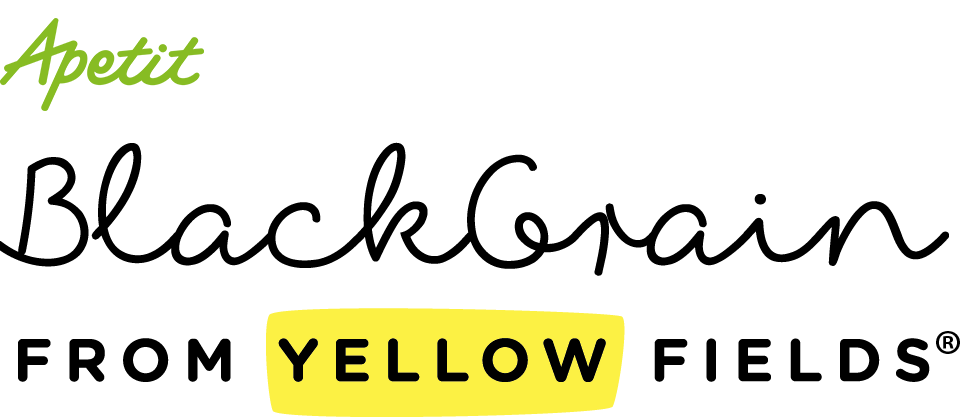Utilising side streams inventively
According to researcher Juha-Matti Katajajuuri, BlackGrain from Yellow Fields® is built on an excellent principle: an abundant existing agricultural raw material is crafted into a versatile plant-based ingredient for human consumption. Recent food innovations such as BlackGrain rapeseed powder demonstrate worthwhile potential as a part of a bigger change towards more sustainable and responsible food systems.
Juha-Matti Katajajuuri, senior scientist and senior customer manager at Natural Resources Institute Finland (Luke) discusses sustainable food production and takes a look at our new BlackGrain rapeseed powder ingredient from a circular economy point of view.
Katajajuuri’s expertise lies in sustainability, circular economy of food systems, and food waste. Circular economy is a sustainable model of production and consumption built on the idea of reusing, refurbishing, and recycling existing materials as thoroughly as possible – in other words, circulating natural resources to minimise waste, bring out the best possible value, and decrease the environmental impact of food systems holistically.
BlackGrain rapeseed powder is a circular plant-based food solution that contributes to the long-standing sustainability trend in food production and consumption
According to Katajajuuri, BlackGrain rapeseed powder is a good example of a circular solution that utilises a side stream of rapeseed oil production and provides the food industry with a new healthy and nutritious ingredient. Until recently, the pressed rapeseed left after oil extraction could only be used as animal feed. Thanks to Apetit’s innovative BlackGrain rapeseed powder, every bit of the rapeseed can now be harnessed for human consumption, wasting nothing.
Discover the upcycling philosophy behind BlackGrain from Yellow Fields®.
Global agriculture and food industries have a major role to play in combatting climate change with sustainable practises.
– On a global level, we need to move towards food systems that can provide sustainable nourishment for the entire human population. This means a greater emphasis on plant-based food, Katajajuuri explains.
– Food innovations like BlackGrain rapeseed powder can be seen as signposts pointing companies and consumers in the right direction.
BlackGrain rapeseed powder demonstrates potential from both an ecological and business point of view
For food companies, innovative and sustainable new ingredients represent business potential and an advantage on the market. Katajajuuri points out that using local Nordic produce to create an ingredient that enhances nutritional value in a range of food products also benefits the local economy in a broader sense.
– Consumers need more responsible plant-based alternatives, and the industry needs more healthy, high-quality ingredients. BlackGrain rapeseed powder is definitely a welcome addition to the selection of fibre-, fat- and protein-rich ingredients available to food companies at the moment.
Read more about answering the hottest consumer trends with BlackGrain from Yellow Fields® rapeseed ingredients.
– All in all, Apetit’s BlackGrain rapeseed powder demonstrates a lot of potential as a food innovation from both an ecological and business point of view. Time will tell what kind of overall effect food innovations like this can have on the economy and the environment, Katajajuuri says.
A head start in food innovation with novel food approval from EFSA
Industrial efficiency and sustainable development don’t always go hand in hand. According to Katajajuuri, product development know-how is at the core of answering the growing demand for genuine sustainability with business-worthy new food ingredients.
– On top of that, food innovators need a pinch of bravery and the ability to rethink production processes.
Katajajuuri notes that BlackGrain rapeseed powder has a head start in the game compared to many other new upcycled food innovations as the ingredient has already been approved as a novel food product by the European Food Safety Authority (EFSA).


